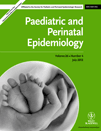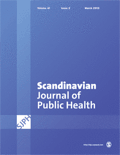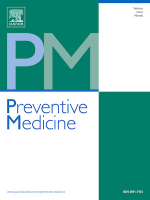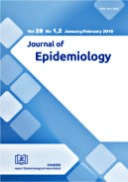
JOURNAL OF EPIDEMIOLOGY AND COMMUNITY HEALTH
Scope & Guideline
Advancing the frontiers of public health knowledge.
Introduction
Aims and Scopes
- Social Determinants of Health:
Research exploring how socioeconomic factors, education, and community environments influence health outcomes and disparities across populations. - Health Inequalities:
Studies investigating the disparities in health status and access to healthcare services among different demographic groups, including ethnic minorities and socioeconomic classes. - Longitudinal and Cohort Studies:
Utilization of longitudinal and cohort studies to understand health trends over time, particularly in relation to childhood experiences, socioeconomic status, and chronic diseases. - Interventions and Policy Evaluation:
Assessment of public health interventions and policies aimed at improving health outcomes, with a focus on their effectiveness and impact on health equity. - Environmental and Occupational Health:
Research examining the influence of environmental factors, such as air quality and urban design, on community health, as well as the impact of occupational hazards on worker health. - Mental Health and Well-being:
Exploration of mental health issues across different populations, emphasizing the role of social determinants and the impact of public health crises like COVID-19.
Trending and Emerging
- Impact of COVID-19:
A significant increase in research examining the effects of the COVID-19 pandemic on mental health, health inequalities, and healthcare utilization, indicating a critical response to the ongoing public health crisis. - Systemic Health Inequities:
Growing focus on systemic health inequities, including studies on structural racism and socioeconomic disparities, emphasizing the need to address root causes of health disparities. - Mental Health and Well-being:
An emerging trend in research emphasizing mental health and well-being, particularly in the context of social isolation and the psychological impacts of economic stressors and public health interventions. - Childhood Adversity and Long-term Outcomes:
Increased attention on how childhood adversity impacts long-term health outcomes, including mental health and chronic diseases, reflecting a life course approach to public health. - Community Engagement and Participatory Research:
A rising interest in community-based participatory research and interventions that involve stakeholders in the design and implementation of health initiatives, highlighting the importance of local context.
Declining or Waning
- Traditional Epidemiological Methods:
There has been a noticeable decrease in publications focused solely on traditional epidemiological methods, such as case-control studies, as newer methodologies, including machine learning and complex systems approaches, gain prominence. - Focus on Infectious Diseases:
Research on infectious diseases, while still important, appears to be less frequent as attention shifts towards chronic diseases and the long-term effects of socioeconomic factors on health. - Individual Risk Factors:
A decline in studies concentrating on individual risk factors for diseases, such as specific lifestyle behaviors, suggests a broader focus on systemic and structural determinants of health. - Global Health Comparisons:
Fewer comparative studies focusing on global health disparities have been published, possibly due to a growing emphasis on localized studies that address specific community needs.
Similar Journals

PAEDIATRIC AND PERINATAL EPIDEMIOLOGY
Pioneering Knowledge in Pediatric and Perinatal HealthPAEDIATRIC AND PERINATAL EPIDEMIOLOGY is a premier journal in the field of epidemiology, published by WILEY. Established in 1987, it provides an invaluable forum for researchers, professionals, and students interested in the intersections of pediatric health and perinatal epidemiology. With its strong reputation, the journal holds a distinguished Q2 ranking in Epidemiology and a Q1 ranking in Pediatrics, Perinatology, and Child Health as of 2023, indicating its influential role in advancing knowledge and practice. The journal is indexed in Scopus, boasting impressive rankings, including Rank #52 out of 330 in Pediatrics, with an 84th percentile standing, demonstrating its significant impact in the field. Although not an Open Access journal, PAEDIATRIC AND PERINATAL EPIDEMIOLOGY equips its readers with high-quality research aimed at improving child and maternal health outcomes, making it a vital resource for anyone committed to advancing public health in these critical areas.

SCANDINAVIAN JOURNAL OF PUBLIC HEALTH
Fostering collaboration for a healthier Scandinavian region.Scandinavian Journal of Public Health is a premier academic journal published by SAGE Publications Ltd, delivering high-quality research in the fields of public health, environmental health, and occupational health. With an impressive impact factor and recognition as a Q1 journal in both the Medicine (Miscellaneous) and Public Health, Environmental and Occupational Health categories, it ranks among the top journals with a Scopus ranking of #110 out of 665, placing it in the 83rd percentile. Established in 1973, the journal has consistently fostered the dissemination of innovative public health research and practices, providing a platform for researchers, professionals, and students alike. Its commitment to open access facilitates widespread accessibility to crucial findings and discussions, thereby enhancing knowledge and improving health outcomes globally. With its long-standing history and continuous contribution to the field, Scandinavian Journal of Public Health remains an essential resource for those dedicated to advancing public health knowledge and practice.

MILBANK QUARTERLY
Elevating Public Health Discourse with Innovative InsightsThe Milbank Quarterly is a preeminent scholarly journal published by Wiley that focuses on a range of vital issues in health policy and public health. With an impressive impact factor underscored by its Q1 rankings in both health policy and public health, the journal serves as an essential resource for researchers and professionals seeking to influence health systems and policies on a global scale. Since its establishment in 1986, The Milbank Quarterly has maintained a commitment to rigorous research and innovative analysis, and it continues to provide a platform for groundbreaking studies that address contemporary challenges in health care. Although it does not currently offer open access, the journal features a comprehensive review process that ensures the publication of high-quality articles aiming to inform policy decisions and elevate public health practices, confirming its status within the top ranks of its field.

SOCIAL PSYCHIATRY AND PSYCHIATRIC EPIDEMIOLOGY
Innovating Research in Psychiatry and EpidemiologySOCIAL PSYCHIATRY AND PSYCHIATRIC EPIDEMIOLOGY, published by Springer Heidelberg, is a leading journal in the fields of Epidemiology, Psychiatry, and Mental Health, as well as Social Psychology. With its origins dating back to 1988, the journal remains at the forefront of research, exploring the intricate relationship between social factors and mental health outcomes. The journal boasts impressive rankings, holding Q1 status in multiple categories for 2023, including a notable rank of #22 in the Health (social science) category on Scopus, highlighting its influential role in academia and practice. Although it operates on a subscription-based model, it is widely recognized for disseminating high-quality research, making vital contributions to public health policy and clinical practice. By actively promoting scholarly discourse and interdisciplinary collaboration, SOCIAL PSYCHIATRY AND PSYCHIATRIC EPIDEMIOLOGY serves as an essential resource for researchers, professionals, and students committed to advancing our understanding of the social determinants of mental health.

Lancet Regional Health-Europe
Fostering Collaboration for Health AdvancementThe Lancet Regional Health-Europe is a prestigious academic journal published by Elsevier, dedicated to advancing research in the fields of Health Policy, Internal Medicine, and Oncology. As part of a reputable series that focuses on regional health issues, it aims to publish high-quality, peer-reviewed articles that contribute to the understanding and improvement of health systems across Europe. With an impressive impact factor reflected in its Q1 quartile rankings for 2023—ranking #2 in Health Policy, #8 in Internal Medicine, and #22 in Oncology—it is recognized for its significant contribution to cutting-edge research. The journal offers open access options, ensuring that findings are widely disseminated and accessible to researchers, healthcare professionals, and policy-makers alike. By fostering collaboration and interdisciplinary discourse, The Lancet Regional Health-Europe serves as an essential platform for innovative solutions and strategies in health care that address the unique challenges faced within the European context, making it an invaluable resource for academics and practitioners dedicated to public health advancement.

Preventive Medicine
Elevating epidemiology for a healthier future.Preventive Medicine is a premier academic journal published by Academic Press Inc Elsevier Science, renowned for its influential contributions to the fields of Epidemiology and Public Health. Since its inception in 1946 and through its dedicated issues leading into 2024, the journal has established itself as a leading platform for cutting-edge research, boasting impressive Scopus rankings, with a notable Q1 status across relevant categories. This journal provides an essential forum for scholars, practitioners, and policy-makers interested in the prevention of diseases and the promotion of health within populations. With each issue, it disseminates valuable insights on preventive strategies, health behaviors, and epidemiological trends, making it crucial for anyone invested in the advancement of public health sciences. The journal does not offer open access options, ensuring that content remains relevant and targeted to its scholarly audience. Given its valuable contributions and recognition in the academic community, Preventive Medicine continues to play a pivotal role in shaping evidence-based approaches to health promotion and disease prevention in modern societal contexts.

JOURNAL OF EPIDEMIOLOGY
Empowering the epidemiology community with knowledge.JOURNAL OF EPIDEMIOLOGY is a premier peer-reviewed journal published by the JAPAN EPIDEMIOLOGICAL ASSOCIATION dedicated to advancing the field of epidemiology and public health. With an impressive impact factor and recognition as a Q1 journal in both the epidemiology and miscellaneous medicine categories, it ranks in the top percentile of its field, occupying the 28th position out of 148 journals in epidemiology according to Scopus. Since its inception in 1991, this open access journal has provided researchers, practitioners, and students with valuable insights and findings that shape healthcare policies and practices globally. The journal covers a broad range of topics within epidemiology, fostering a multidisciplinary approach to understanding and addressing health challenges. With a commitment to high-quality research and accessibility, the JOURNAL OF EPIDEMIOLOGY plays a crucial role in the dissemination of knowledge and best practices within the public health community.

Epidemiologia & Prevenzione
Advancing public health through rigorous epidemiological research.Epidemiologia & Prevenzione is a distinguished journal published by INFERENZE SCARL based in Italy, focused on advancing the fields of epidemiology and public health. Established in 1987, this journal serves as a pivotal platform for researchers, practitioners, and students to disseminate and exchange important findings related to epidemiology, as well as environmental and occupational health. With an HIndex that reflects its growing academic influence, it currently holds a Q3 quartile ranking in both Epidemiology and Public Health, highlighting its relevance in the scientific community. The journal is indexed in Scopus, ranked #368 in the field of Public Health and Environmental and Occupational Health, and #87 in Epidemiology, showcasing its commitment to high-quality research. Although it operates without an open access model, Epidemiologia & Prevenzione remains a vital resource in promoting knowledge and innovation for a healthier society, making it essential reading for anyone invested in these critical areas of study.

Iranian Journal of Public Health
Empowering communities through evidence-based practices.Iranian Journal of Public Health is a premier publication dedicated to advancing the field of public health research. Established in 2001 and published by the Iranian Scientific Society Medical Entomology, this Open Access journal provides an invaluable platform for disseminating innovative findings and practices aimed at addressing public health challenges both locally and globally. With its roots tracing back to 1973, the journal has evolved through multiple converged years, reflecting a rich history of commitment to the health sciences. Currently categorized in Q3 within Public Health, Environmental, and Occupational Health, as per the 2023 rankings, it ranks 406 out of 665 in the Scopus database, placing it in the 39th percentile. This significant positioning underscores its role in fostering high-quality research that informs policy and enhances community health outcomes. The editorial team is dedicated to upholding rigorous academic standards while embracing diverse perspectives that resonate within the dynamic landscape of public health. It is an essential resource for researchers, professionals, and students alike, fostering collaborative efforts in the relentless pursuit of health equity and sustainability.

BMC PUBLIC HEALTH
Championing open-access research for a healthier world.Welcome to BMC Public Health, a premier open-access journal published by BMC, dedicated to advancing research in the fields of public health, environmental, and occupational health. Since its inception in 2001, BMC Public Health has emerged as a leading platform for disseminating high-quality research, achieving a remarkable Q1 ranking in 2023 within its category, and earning a notable position of rank #114 out of 665 in Scopus, reflecting its impact and relevance in a competitive field. With a commitment to open-access publishing, the journal ensures that research findings are accessible to a global audience, fostering collaboration and knowledge sharing among researchers, professionals, and students alike. Based in the United Kingdom, BMC Public Health aims to address pressing issues in public health through innovative research and comprehensive reviews, making significant contributions to policy-making and best practices worldwide. We invite you to explore the wealth of knowledge and contributions made by authors in this essential publication.